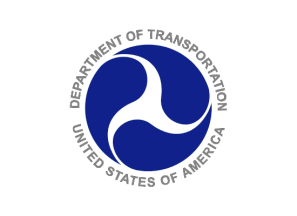More than 130 communities in 41 states and Washington, DC will benefit from Bipartisan Infrastructure Law and Inflation Reduction Act funding to stitch back communities by capping highways, adding new transit routes, adding sidewalks, bridges, bike lanes and more
WASHINGTON – Today, U.S. Transportation Secretary Pete Buttigieg announced $3.33 billion in grant awards for 132 projects through the Reconnecting Communities Pilot and Neighborhood Access and Equity discretionary grant programs as part of President Biden’s Investing in America Agenda. The funding is aimed at reconnecting communities that were cut off by transportation infrastructure decades ago, leaving entire neighborhoods without direct access to opportunity, like schools, jobs, medical offices, and places of worship.
The Biden-Harris Administration is taking historic action to deliver for communities that have been left behind for too long. Thanks to additional funding from the Inflation Reduction Act, this investment is 18 times larger than the investments from the previous year’s standalone Reconnecting Communities Pilot Program. Both programs are part of the President’s Justice40 Initiative.
“While the purpose of transportation is to connect, in too many communities past infrastructure decisions have served instead to divide. Now the Biden-Harris administration is acting to fix that,” said U.S. Transportation Secretary Pete Buttigieg. “Today we are proud to announce an unprecedented $3.3 billion to help 132 communities deliver better infrastructure that reconnects residents to jobs, health care, and other essentials.”
The Department has created a virtual story that spotlights communities’ stories, the historic context for the program, and the future it seeks through funding the reconnection of communities here.
In this round of funding for the Reconnecting Communities Pilot and Neighborhood Access and Equity program, the Department is awarding 72 Planning Grants, 52 Capital Construction grants and 8 Regional Planning Grants. Awarded projects include:
- Reconnecting Atlanta’s Southside Communities: Atlanta BeltLine to Flint River Trail in Atlanta, Georgia is a multi-jurisdictional, regional solution that utilizes an ambitious, multi-use, multi-jurisdictional trail (Trail) to address the challenges that residents of Atlanta’s Southside have endured as the consequences of the construction of major interstates around Hartsfield-Jackson Atlanta International Airport (Airport), the “world’s busiest airport.” In the small railroad towns surrounding the Airport, from East Point to Riverdale, dividing facilities like I-85, I-285, and GA-166 sliced the fabric of residential neighborhoods. This Trail would bridge the transportation barriers to connect schools, hospitals, job centers, Metropolitan Atlanta Rapid Transit Authority (MARTA) rail stations, the BeltLine, and employment centers. The Trail would link disadvantaged communities—a regional collaboration crossing multiple jurisdictions for an area long passed over for federal transportation investments.
- The second Atlanta grant is for The Stitch Phase 1 Implementation, a cap of Interstates 75/85, known locally as the “Downtown Connector,” will seamlessly reconnect the torn urban fabric of Downtown with a new major park, extensive transportation improvements, sustainable infrastructure, and increased affordable housing. The Downtown Connector was intentionally planned to run through established low-income Black communities as a racially charged method of ridding Downtown of “blighted” areas in favor of new commercially focused development centered around the automobile. The Stitch will provide multi-modal connections over the interstate via multi-use paths, an improved surface transportation network, and enhanced transit amenities.
- The Reconnecting 4th Ave N: A Two-Way Vision for Reviving Legacy and Inspiring Progress project in Birmingham, Alabama was awarded a grant for a 15-block Complete Streets redesign of Birmingham’s Black Main Street. The redesign will include converting the road from one-way to two-way and will help reconnect downtown neighborhoods and businesses divided by the construction of Interstate 65 in the 1960s. The project encompasses the Historic 4th Avenue Business District, a once thriving hub of black businesses and community in Birmingham. This multimodal project will help to revive the access and connectivity that helped the community thrive prior to its conversion into a one-way street during the 1970s.
- The Broadway Main Street and Supporting Connections is one of two grants awarded to Portland, Oregon that will construct multimodal safety and streetscape improvements across Interstate 5 (I-5) in inner North/Northeast Portland, Oregon. The project improves access and connectivity and foster equitable development and restoration in the heart of the city’s historic Black neighborhood, Lower Albina, an underserved community designated as both historically disadvantaged and an area of persistent poverty, and will reconnect Lower Albina to neighborhoods and key destinations across I-5, a major grade separated facility that divided the neighborhood and displaced hundreds of residents when it was constructed.
- The second Portland grant, I-5 Rose Quarter Improvement Project will be used for the project’s design and constructing the project’s main reconnecting feature—a highway cover that will support new community space and future development, while reconnecting [Lower Albina to] local streets over Interstate 5 (I-5) and providing better access to the central city and the waterfront in Portland, Oregon. Building the highway cover is an essential first step to actualizing the community’s vision and improving the transportation network in partnership with the City of Portland.
- The Reconciliation, Regeneration, and Reconnecting the Selma to Montgomery Trail through Equitable Transportation Infrastructure in Montgomery, Alabama will reconnect the West Montgomery residents located on the Selma-to-Montgomery Trail to opportunities, access, and connectivity by addressing poor social determinants of health that exist because of segregation, redlining, and construction of Interstates 65 and 85. The project identifies many disenfranchised local communities that will benefit by enhancements to the trail. These enhancements will allow the City of Montgomery to reinvest in foundational transportation solutions in Historic West Montgomery to facilitate the renaissance of the Selma-to-Montgomery Trail community.
- The Reconnecting Rexburg: Planning & Designing Connections Across US Hwy 20 project in Rexburg, Idaho will address the impacts of the construction of US Highway 20, which had a profound impact on Rexburg residents when what was once a convenient and well-connected community suddenly found itself faced with a significant barrier, disrupting daily routines, and altering the dynamics of everyday life. The City of Rexburg intends to have a professional company research, assess, design, and plan the best options for reconnecting the disadvantaged communities that lie on the west side of Highway 20 with the town amenities that are necessary and important for daily living.
- The Chinatown Stitch project in Philadelphia, Pennsylvania will complete the first phase of design and construction work for a highway cap to reconnect Chinatown, a community that is disproportionately impacted by the Vine Street Expressway (I-676). Since its inception in the 1960s, the Vine Street Expressway has represented a threat to the Chinatown community and upon completion in the 1990s, the highway effectively separated the neighborhood into the commercial core of Chinatown to the south and a more industrial area to the North. The proposed project aims to address historic inequities caused by transportation infrastructure, restore community connectivity, and improve quality of life.
The full list of Reconnecting Communities Pilot and Neighborhood Access and Equity awards can be viewed here.
These programs are part of President Biden’s Justice40 Initiative, which set the goal that 40 percent of the overall benefits of certain Federal investments flow to disadvantaged communities that are marginalized by underinvestment and overburdened by pollution. The Department prioritized applications from disadvantaged communities that demonstrated strong community engagement and stewardship to advance equity and environmental justice, and would catalyze shared prosperity project development and job creation.
Last year, in the inaugural round of the Reconnecting Communities Pilot Program, the Biden-Harris administration awarded grants for transformative, community-led solutions, including capping interstates with parks, filling in sunken highways to reclaim the land for housing, and converting inhospitable transportation facilities to tree-lined Complete Streets. These projects will help revitalize communities, provide access to jobs and opportunity, and reduce pollution.
The Reconnecting Communities Pilot Program (RCP) in the Bipartisan Infrastructure Law has been combined with the newly-established Neighborhood Access and Equity discretionary grant program in the Inflation Reduction Act.
This joint application makes it more efficient and accessible than ever for project sponsors to apply for the historic levels of infrastructure funding made available by the Biden-Harris administration’s Investing in America agenda. While Reconnecting Communities and Neighborhoods grants can come from either program, they share important key characteristics including prioritizing disadvantaged communities — including rural, Tribal and urban communities — and improving access to daily needs and basic services.
The Reconnecting Communities and Neighborhoods program is an important component of the Department’s commitment to equity and the Biden-Harris administration’s commitment to supporting communities marginalized by underinvestment and overburdened by pollution and strengthening equitable development. Restoring communities like those awarded grants today helps give everyone an equal chance to get ahead and opportunity to accessing jobs and essential services such as healthcare services, grocery stores, and places of worship. To find out more about what the Department is doing to support equity, see the recently update Equity Action Plan, which can be viewed here.
For more information on the Reconnecting Communities and Neighborhoods, the Reconnecting Communities Pilot and the Neighborhood Access and Equity programs, including additional resources and information for interested applicants and stakeholders, click here.
###
Official news published at https://www.transportation.gov/briefing-room/biden-harris-administration-announces-history-making-33-billion-locally-led-projects
The post Biden-Harris Administration Announces History-Making $3.3 Billion for Locally-Led Projects That Reconnect Communities as Part of President Biden’s Investing in America Agenda first appeared on Reliable News.




More Stories
INVESTING IN AMERICA: Biden-Harris Administration Strengthens Transit Manufacturing Industry with $1.5 Billion from Bipartisan Infrastructure Law to Put More American-Made Buses on the Road
Biden-Harris Administration Announces Funding for 15 Small Shipyards in 12 States to Boost Productivity and Create Jobs
FRA Makes Available $153 Million in Funding to Initiate, Restore, and Enhance Intercity Passenger Rail Services